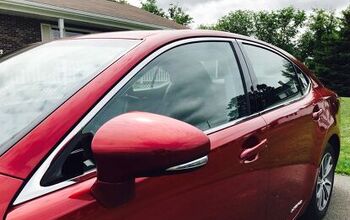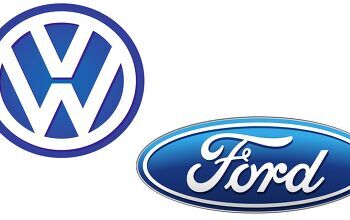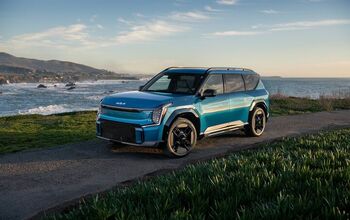What Does Ford Look Like As a Mobility Company?

These days, every automaker is in the midst of a metamorphosis, eager to emerge from their chrysalis as a “mobility company.” Even brands that don’t seem bent on completely revolutionizing their business model now use the term in reference to themselves.
Ford, which has positioned itself as a mobility company ever since Mark Fields was steering the ship, is among those pushing the narrative the strongest. Fields may have been fired for having a lofty, tech-focused vision that couldn’t charm investors, but much of it carried over to Jim Hackett’s tenure as CEO. Ford desperately wants to be seen as a cutting-edge nameplate.
However, the assumption among industry experts is that it’s lagging behind General Motors in terms of autonomous driving, electrification, and the ability to tap into alternative revenue streams. We sometimes wonder how accurate those assumptions are.
Let’s start with what we know. Ford has put quite a bit of its own money into advanced technologies. While it’s not quite the colossal sum amassed by GM and its investors, the Blue Oval still put over $1 billion into Argo AI alone and is seeking further help cutting costs and collaborating on AV and EV development. It’s also in the middle of building two new data centers it hopes can handle the expected 1,000 percent increase in digital traffic.
Despite this, Ford always appears to be a half step behind General Motors. The General is strongly pushing car connectedness and has already managed to monetize new services through its on-board Marketplace app. Data acquisition is the next piece of that puzzle, which GM also has a relatively clear business model for. But it’s the firm’s autonomous cars that get the most media attention.
Again, GM seems to be leading here. Ford doesn’t plan to launch a commercial business with autonomous vehicles until 2021. But General Motors has a lot of money riding on setting up its own autonomous taxi service before 2020. Meanwhile, Ford appears to be en route to everywhere its historic rival is, just a year or two later. But that’s not entirely fair, according to the CEO of Ford Autonomous Vehicles Sherif Marakby.
“If we wanted to launch 100 vehicles and call it a launch next year, we could do that,” Marakby told Automotive News. “I don’t think that’s what we want to do when we get to the complexity of getting to profitability. We think it requires considering the entire value chain, and understanding customers, to call it a launch. We’re talking launch at scale.”
It would be easy to chalk that up to an executive protecting the image of their company, but there’s a lot of truth in Markaby’s words. Ford’s pursuit of mobility as a business has been thorough and cautious. The company has tested numerous faux autonomous vehicles just to see how the general public would interact with them, while continuing tests of the real thing on both public roads and in relative isolation. It has also sought out partners for future business endeavors and rolled out numerous pilot programs of its own.
From Automotive News:
The company says it foresees a market worth $332 billion developing by 2026, in which ride-hailing revenues will account for $202 billion and delivery services valued at $130 billion. Along those lines, Ford hatched a partnership with Walmart on Wednesday in which the two companies will explore ways to collaborate on grocery delivery.
It’s not Ford’s first foray into delivery. It started testing pizza-delivery services using an autonomous vehicle with Domino’s Pizza in Ann Arbor, Mich., last year. More recently, it added a partnership with Postmates, a delivery platform, in Miami, through which Ford works with approximately 80 companies to provide autonomous delivery options. Those range from national companies such as Domino’s to local dry cleaners and florists.
The automaker also intends to equip 90 percent of its global fleet with modem connectivity by 2020, with a a pretty slick analytics suite under development for fleet managers. All the while, Ford Autonomous Vehicles will see billions more dumped into it through 2023.
These aren’t half-measures. Still, Ford remains worried that the public has confused caution with indecisiveness. “We are laser-focused on utilization and revenue, and that’s what we call launch at scale,” Marakby said. “Which I believe is different than what others are thinking.”
Ford appears to be working on how to make advanced technology profitable; other automakers leading the charge seem more interested in getting it to market to test the theory. In business, it’s hard to say which approach is better. But it’s similarly difficult to assess who’s really in the lead. We’re still of the mind that Ford is trailing GM and Waymo in terms of a deliverable product, but we’ve also learned that the latter two companies have encountered problems. Waymo suffered a few high profile crashes this year and locals complain that its test platforms are a regular annoyance on the road. Meanwhile, GM is alleged to be further behind in developing its Cruise AV than initially assumed.
“We’re going to work on building the future by building an autonomous-vehicle business,” Ford CEO Jim Hackett said on Wednesday. “That’s the center.”
That’s not a particularly unique strategy and maybe not any different from what General Motors is proposing. Perhaps it’s as simple as Ford being slightly behind the biggest of the Big Three in terms of development. Still, the company also has a lot of irons in the fire, more so than other automakers currently undergoing their own mobility transformations. Going in smart and probing every possible avenue isn’t stupid, if that is indeed what Ford is doing, but it’ll have to pull the trigger on something eventually. Otherwise, it could find itself having dumped billions into technology it never turned a profit from, upsetting a lot of already lukewarm investors in the process.
[Image: Ford]

A staunch consumer advocate tracking industry trends and regulation. Before joining TTAC, Matt spent a decade working for marketing and research firms based in NYC. Clients included several of the world’s largest automakers, global tire brands, and aftermarket part suppliers. Dissatisfied with the corporate world and resentful of having to wear suits everyday, he pivoted to writing about cars. Since then, that man has become an ardent supporter of the right-to-repair movement, been interviewed on the auto industry by national radio broadcasts, driven more rental cars than anyone ever should, participated in amateur rallying events, and received the requisite minimum training as sanctioned by the SCCA. Handy with a wrench, Matt grew up surrounded by Detroit auto workers and managed to get a pizza delivery job before he was legally eligible. He later found himself driving box trucks through Manhattan, guaranteeing future sympathy for actual truckers. He continues to conduct research pertaining to the automotive sector as an independent contractor and has since moved back to his native Michigan, closer to where the cars are born. A contrarian, Matt claims to prefer understeer — stating that front and all-wheel drive vehicles cater best to his driving style.
More by Matt Posky
Latest Car Reviews
Read moreLatest Product Reviews
Read moreRecent Comments
- Mike Beranek In the sedan game, it's now either Camry or Accord. The rest are just background noise.
- Theflyersfan I know their quality score hovers in the Tata range, but of all of the Land Rovers out there, this is the one I'd buy in a nanosecond, if I was in the market for an $80,000 SUV. The looks grew on me when I saw them in person, and maybe it's like the Bronco where the image it presents is of the "you're on safari banging around the bush" look. Granted, 99% of these will never go on anything tougher than a gravel parking lot, but if you wanted to beat one up, it'll take it. Until the first warning light.
- Theflyersfan $125,000 for a special M4. Convinced this car exists solely for press fleets. Bound to be one of those cars that gets every YouTube reviewer, remaining car magazine writer, and car site frothing about it for 2-3 weeks, and then it fades into nothingness. But hopefully they make that color widespread, except on the 7-series. The 7-series doesn't deserve nice things until it looks better.
- Master Baiter I thought we wanted high oil prices to reduce consumption, to save the planet from climate change. Make up your minds, Democrats.
- Teddyc73 Oh look dull grey with black wheels. How original.



































Comments
Join the conversation
Ford looks no different than any other "Mobility Company": A bunch of childish, naive half literates. Focused on selling paper to pension funds, rather than on producing anything of any value at all. That's what "Mobility Company" is all about: Cut the idiots in on the value their betters, capable of building real stuff of some complexity, has created.
According to AE Ford has two problems. One is Jim Hackett and the second one is Jim Farley. Two Jims - two problems. I want fun to drive reliable cars, thats all I care about.